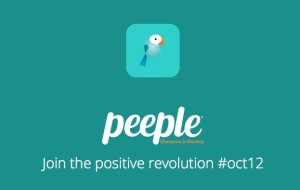
It’s finally dawned on me why so many hyperlocal businesses hate Yelp and are so afraid of review sites in general. There was massive backlash against the new site Peeple, which was originally marketed as a “Yelp for individuals”. The objection is that people in general are not nice to other people online, and what is the value of other people reviewing you online? John Oliver sums it up perfectly [Note: check out his alternative service – Peeble!]. And therein lies the problem. Most hyperlocal businesses are very small – in fact, the business and the person are usually interchangeable. So, when attacking or giving negative reviews to a small business, it’s perceived that you are attacking the owner personally.
I have always been aware of the personal nature of hyperlocal businesses, so this probably shouldn’t have come as such a large surprise. I always found it interesting that when I speak to hyperlocal business owners about review sites, I typically wind up hearing a lengthy discussion of a single reviewer who was just not satisfied, no matter what the business owner did. The owner goes into all the gory details, remembering this interaction vividly, no matter how long ago it happened. After telling this story, I generally ask two questions of the business owner:
- Do you recall any other reviews that you’ve received since getting the “crazy” one?
- The details you just described to me about the incident and your description of why your business could have NEVER been as bad as the reviewer said – is that posted anywhere publicly, either in a response to the reviewer or on your own website?
The answer to both questions is almost always, “No”.
There is a deep psychology involved that is tough to navigate. We love sensational stories that seem beyond the realm of normal behavior. That means that a typical, civil conversation online is boring and unremarkable. Even more so if you know the parties involved. But an anonymous and outrageous online conversation? For some reason this is big news. It strikes a nerve.
It’s important that your brand be out there online. Once that happens, realize that there will be people that will say good things and others that will say bad or sensational things. You need to separate your personal brand and your business brand. For your business to grow, it has to be about more than just you. Your employees, your customers, your suppliers – they are all part of your brand. All comments should be viewed from the perspective of how it impacts your business brand. And some comments (especially the sensational ones) don’t have any impact. Or, at least, you need to treat them as if they don’t.
Here’s what you need to do:
- Pay attention to all your reviews. Look at what percentage are positive vs. negative. Don’t let the psychology of a sensational review cloud your judgement. Is your brand fairly represented online? If you have 100% positive feedback online, that is not a fair representation. The goal isn’t to hide the issues. It’s to be authentic.
- Make sure when somebody says something about your business that isn’t true, that you set the record straight, either in a response to the review, or included in the content on your website. Be thrilled when somebody calls out something that isn’t true online. Because otherwise, those things have likely been said offline, and you’ll have no idea and no ability to respond.
When I read about Peeple I just laughed. I think it’s a horrible idea, but it wouldn’t bother me if it went live and people started talking about me. The thing is, there’s only a handful of people whose opinion matter to me personally. Everybody else would be noise. But your business brand is different. Everyone who your business serves should be valued and you want to hear what they have to say.
Business & Finance Articles on Business 2 Community(57)
Report Post






